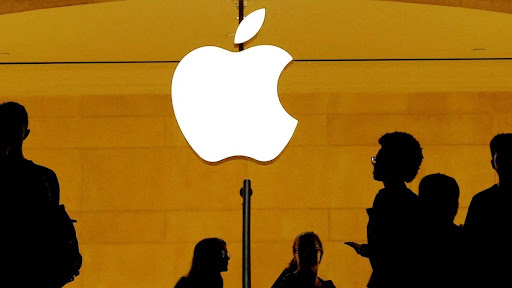On March 21st, the United States Department of Justice, along with 15 states and the District of Columbia, initiated legal action against tech giant Apple, accusing the company of exploiting monopolistic practices in its marketing strategies. According to the lawsuit, Apple has breached federal antitrust laws, rules meant to promote healthy competition among businesses and prevent any single company from controlling a market too heavily.
The lawsuit claims that Apple integrates features that bind users to its ecosystem—such as displaying text messages from non-Apple users in green, having an exclusive digital wallet that is not transferable to other smartphone brands, and designing smartwatches that only synchronize with iPhones—and promotes user dependency on its products.
Additionally, the lawsuit points out Apple’s simultaneous pricing exploitation. The lawsuit notes that iPhones can cost “as much as $1,599,” allowing Apple to secure profit margins that are more than double those of its smartphone competitors such as Google or Samsung.
Apple also has a reputation for taking advantage of app developers, taking up to a 30% cut from app sales through its App Store, and further requiring Google to pay hefty fees to remain the default search engine instead of Apple’s Safari. In 2022, Google paid $20 billion to be Apple’s default search engine. Critics say these practices are not only a factor in Apple’s profitability, but also demonstrate its abuse of market dominance to maximize profits.
The case has sparked diverse reactions among Brooklyn Tech students, but many believe the lawsuit has merit. A Survey poll revealed that 79% of Tech students support the lawsuit, believing that Apple’s features reflect a monopolistic practice.
Opinion within the Tech community on how the lawsuit may play out is varied, yet mostly agrees on key points regarding uncertainty of the lawsuit’s outcome and the validity of the claims it alleges.
Constitutional Law teacher Mr. David Schepard acknowledged concerns about the Department of Justice’s arguments questioning Apple’s claims of not holding enough international market share to be considered a monopoly.
“In the United States, Apple’s U.S. market share poses a significant concern, contrasting sharply with its share internationally, which does not suggest a monopoly,” Schepard explained.
Apple owns over 60% of market shares in the U.S., compared to 30% internationally.
Schepard reflected on historical antitrust regulations and how they advantages Apple’s own market for its products.
“Ironically, Apple, now a trillion-dollar company…owes its scale to the antitrust case…that dismantled Microsoft’s dominance over web browsers in 1997,” he said, further noting that Apple’s share in the U.S. market does not compare to Microsoft’s former 90% share at the time.
Software Engineering major Nikita Manannikov (‘25) pointed out potential flaws in the current regulatory framework that may undermine the lawsuit’s basis. With many antitrust laws dating back from the late 1800s to the early to mid 1900s.
“These laws are pretty old,” he added, “They might be outdated.”
Anecdotally, Manannikov reported that he still sees a decent share of non-iPhones at Tech and beyond, however some studies have noted that as much as 87% of teens own iPhones in the United States.
“Even in the United States, there’s a good share of Android phones, and no one is really forced into the Apple ecosystem,” he observed.
Aerospace Engineering major Jack Mendez (‘25) acknowledged that people were not loyal to Apple solely as a result of their closed ecosystem.
“I do think Apple has a monopoly because many people think Apple is better,” he said. “I mean, I think they have better features, better security, they don’t have green text bubbles, and you can get more apps.”
Mr. Schepard echoed Mendez’ point that loyal purchasers may be hooked as a result of Apple’s security, an argument that Apple has actually raised in its defense.
“The Apple argument is also that they are not acting anti-competitively,” he explained. “Part of the reason people buy Apple is because they love the product and part of what they offer in their products are privacy and security through an ecosystem.”
The lawsuit is expected to continue for years, but it has already sparked considerable debate and holds significant implications not only for adults but also every teen who uses an iPhone. For students and young consumers, the outcome could influence their everyday interactions with technology and the availability of competitive options in the marketplace.








































